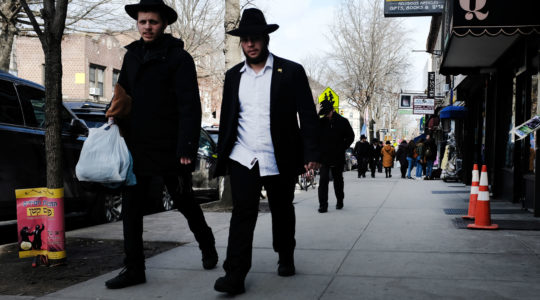JERUSALEM, Nov. 2 (JTA) — In a decision that advances the cause of religious pluralism in Israel, the High Court of Justice has ordered three Israeli cities to appoint Reform and Conservative representatives to local religious councils. Along with the ruling regarding Tel Aviv, Haifa and Arad, the court called on a government committee that oversees the contentious issue to resolve pending challenges regarding the religious councils of Jerusalem and the northern community of Kiryat Tivon. In its ruling, the 13-justice panel established a general criterion for membership on the local councils — that the representatives not be anti-religious. The participation of non-Orthodox representatives on the councils has been hotly debated in the courts for more than two years. The local religious councils, supervised by the Religious Affairs Ministry, have exclusive jurisdiction over marriage, kashrut, burial and other religious matters for all Jews living in Israel. Members of each council are appointed by the local municipal council, the religious affairs minister and the local chief rabbi. Rabbi Uri Regev, head of the Movement for Progressive Judaism in Israel, as the Reform movement in Israel is known, termed the latest ruling an “important stepping stone” that builds on a ruling last year which opened the way for the appointment of a Reform representative to the Netanya religious council. But Orthodox representatives challenged the ruling, questioning how it would be possible for a religious council to operate if its members possessed varying degrees of religious observance. “Regarding Haifa, the question was not whether Conservative, Reform and Orthodox could sit together on a council. We consider such categorizing artificial,” Haifa’s chief rabbi, Rabbi Sha’ar Yishuv Cohen, told Israel Radio. “If the council includes members who openly say they do not observe” kashrut and keep the Sabbath, “then the religious councils, whose function is to provide religious services, such as kashrut certification, cannot accomplish their tasks.”

Help ensure Jewish news remains accessible to all. Your donation to the Jewish Telegraphic Agency powers the trusted journalism that has connected Jewish communities worldwide for more than 100 years. With your help, JTA can continue to deliver vital news and insights. Donate today.





